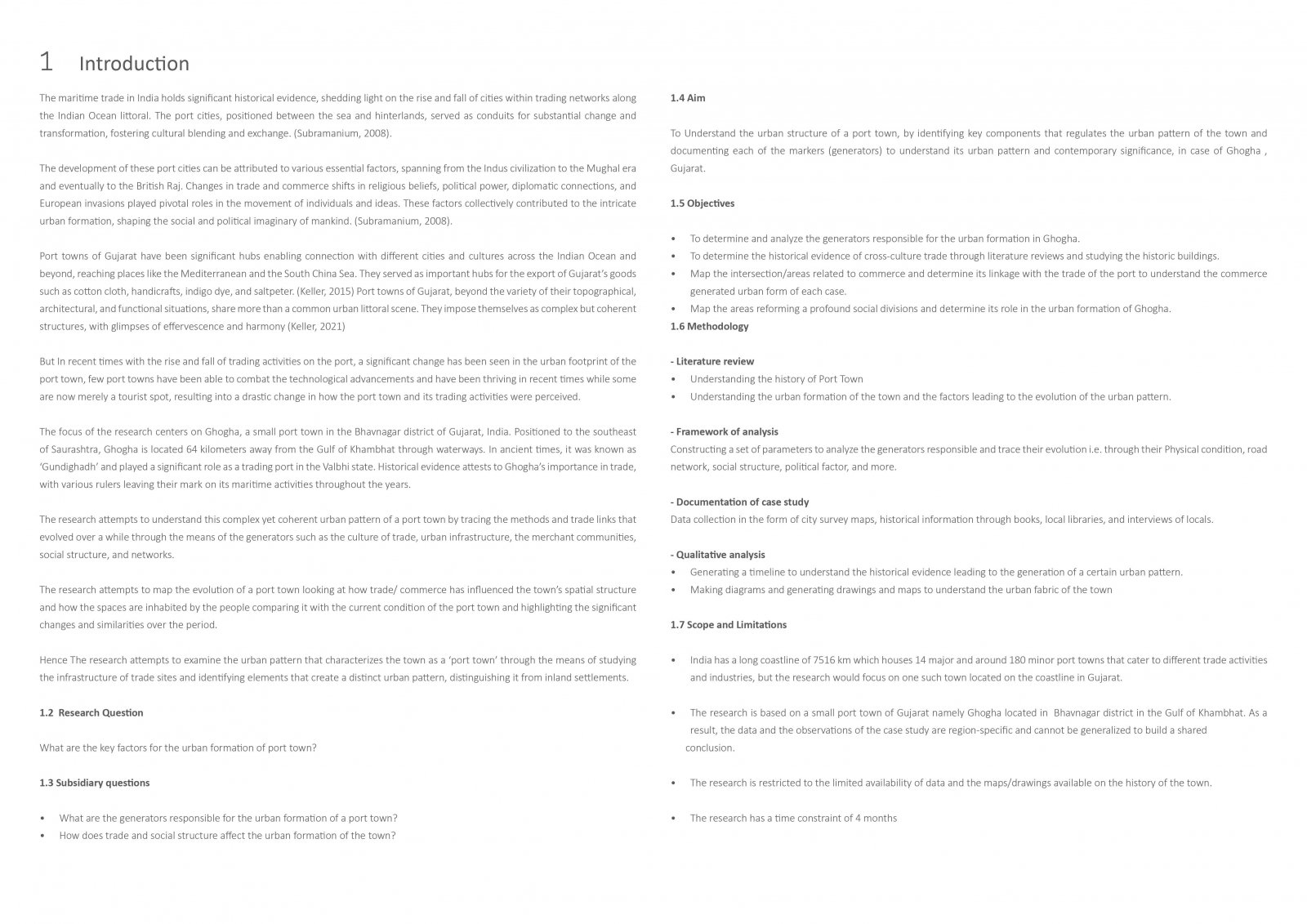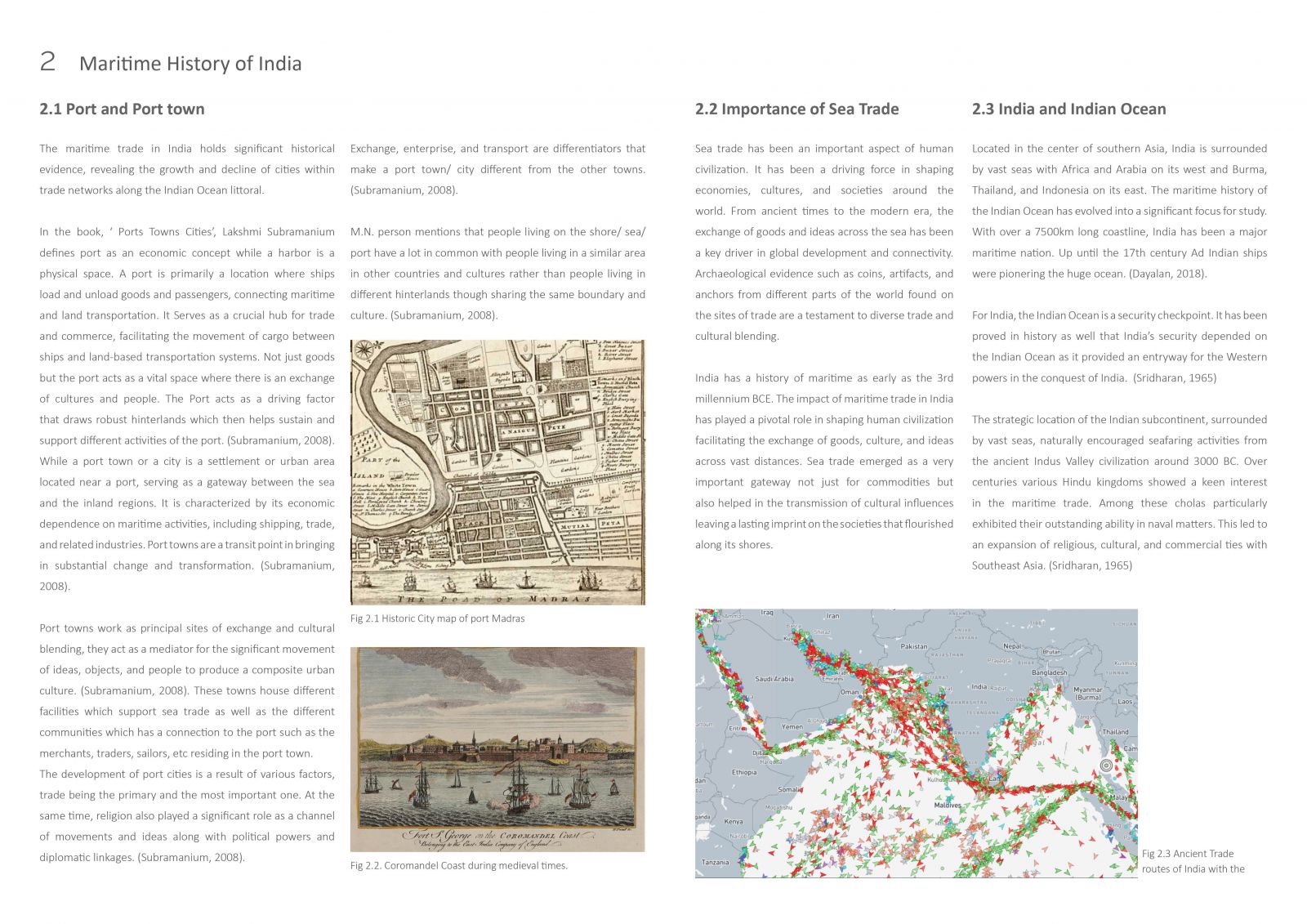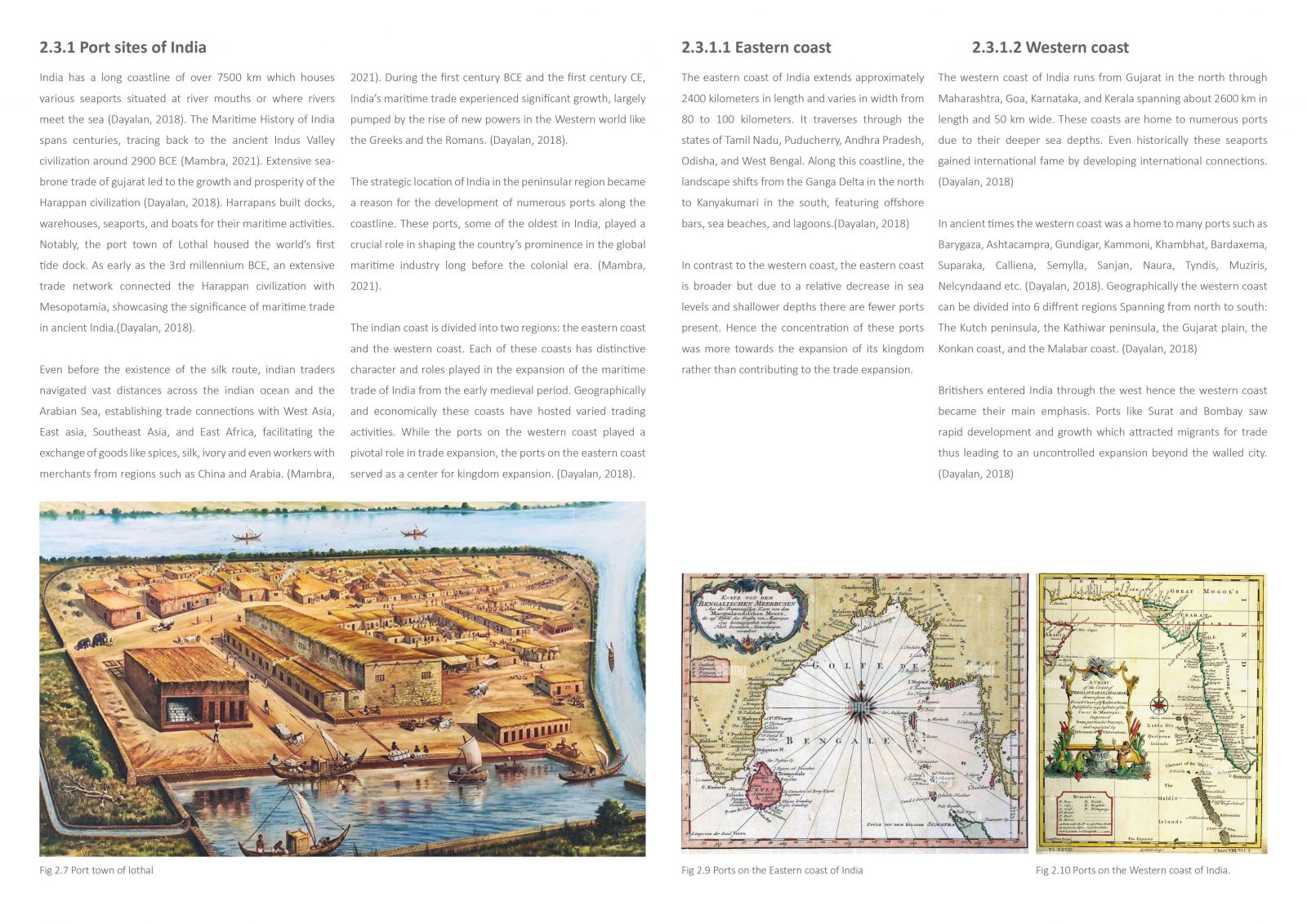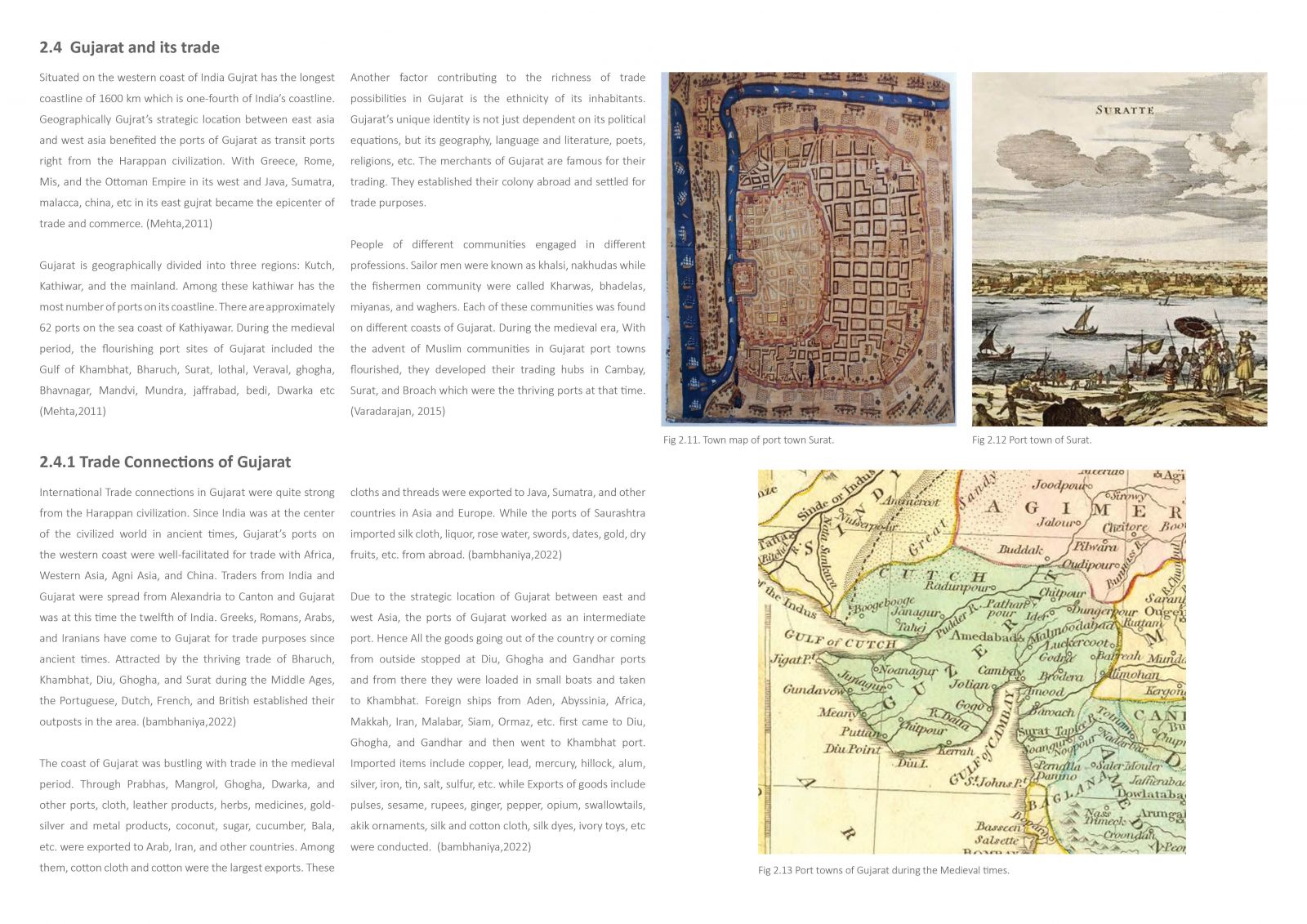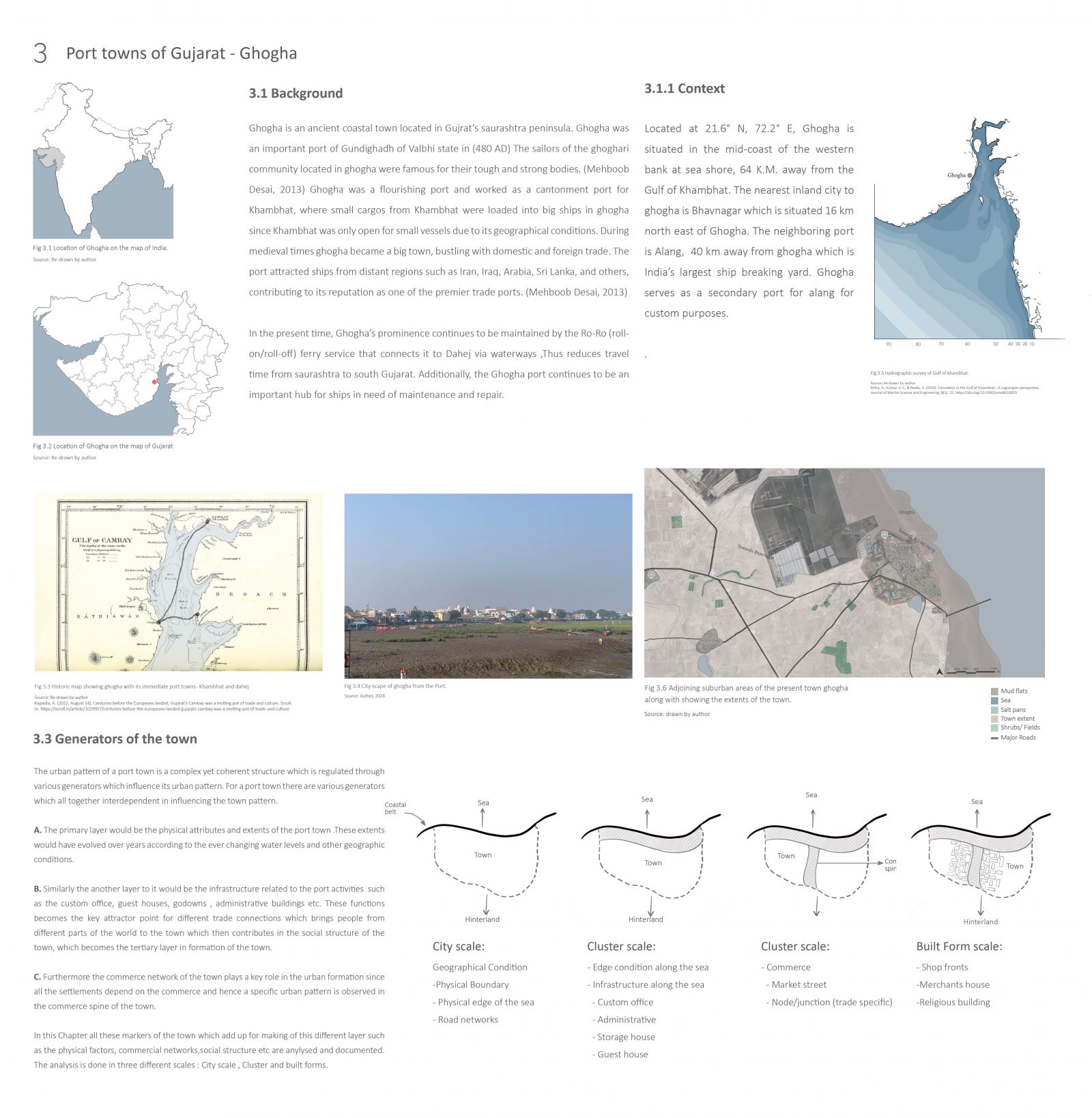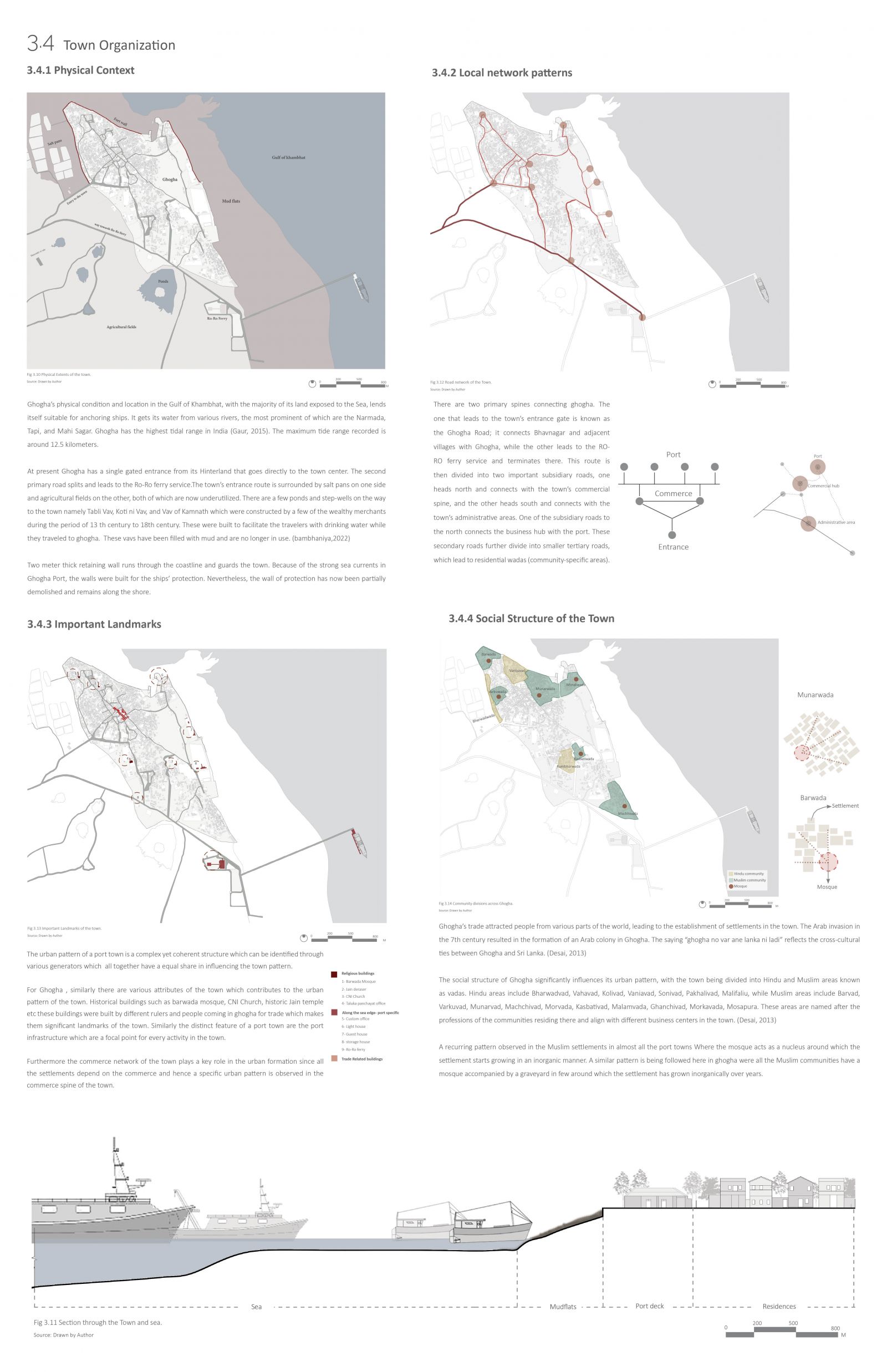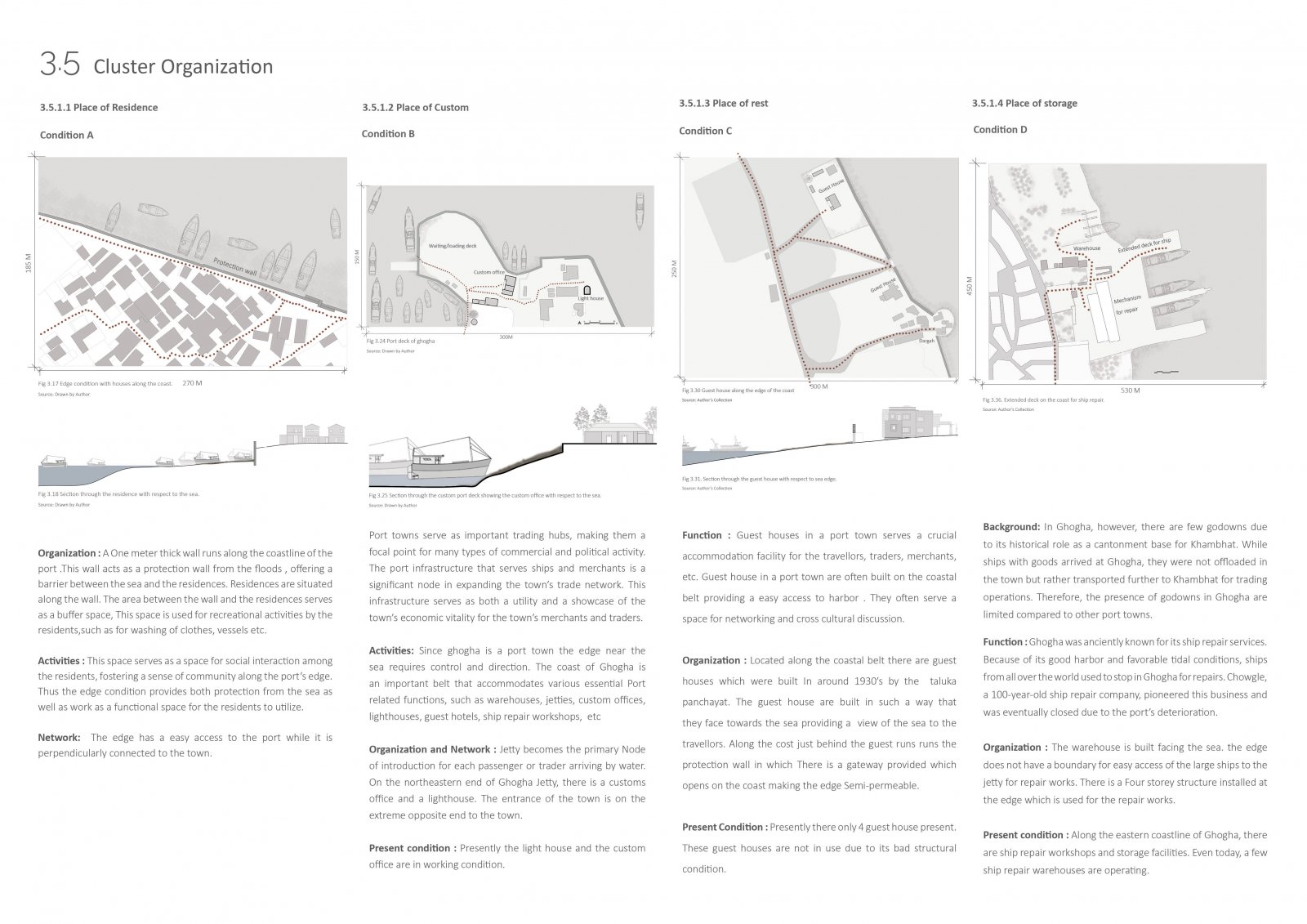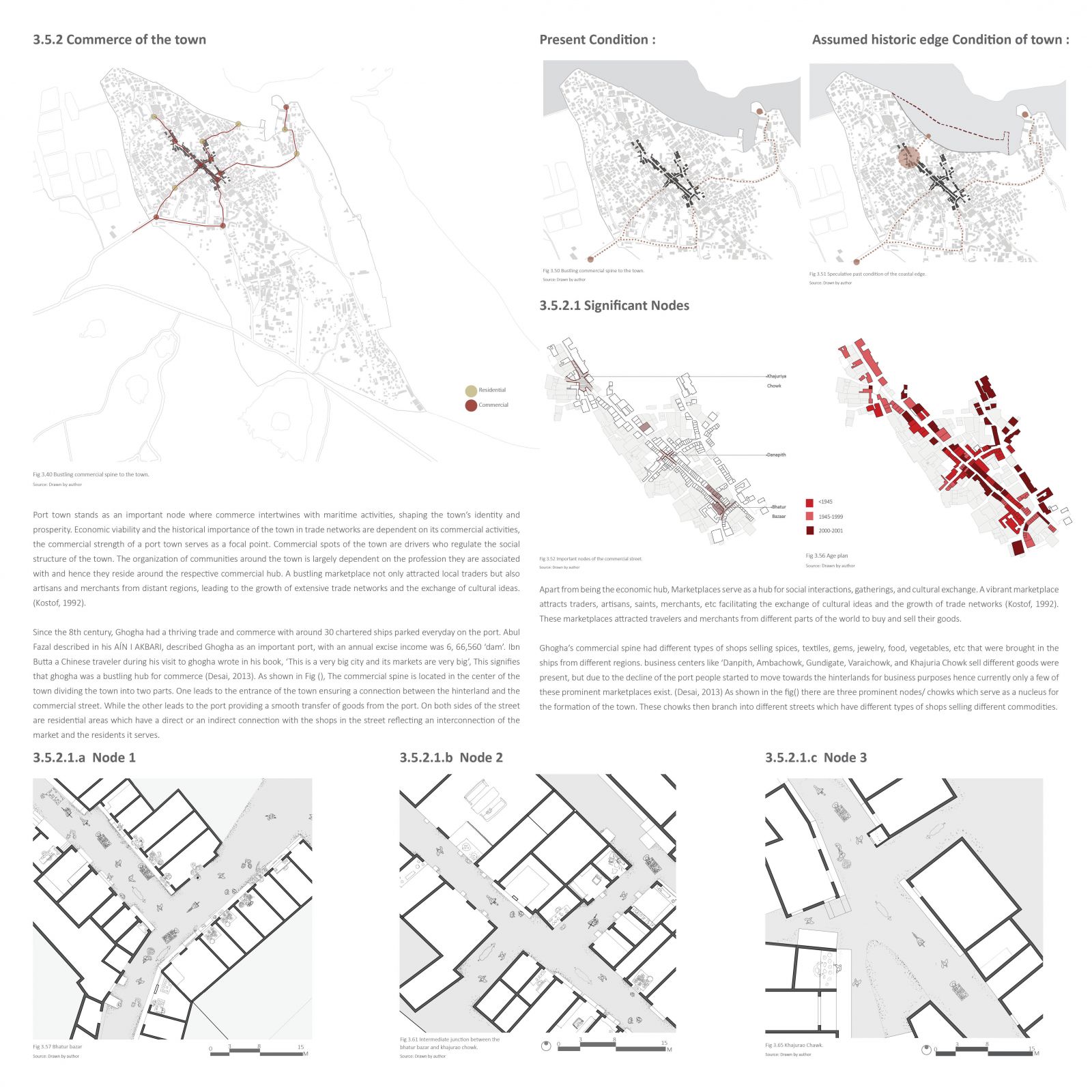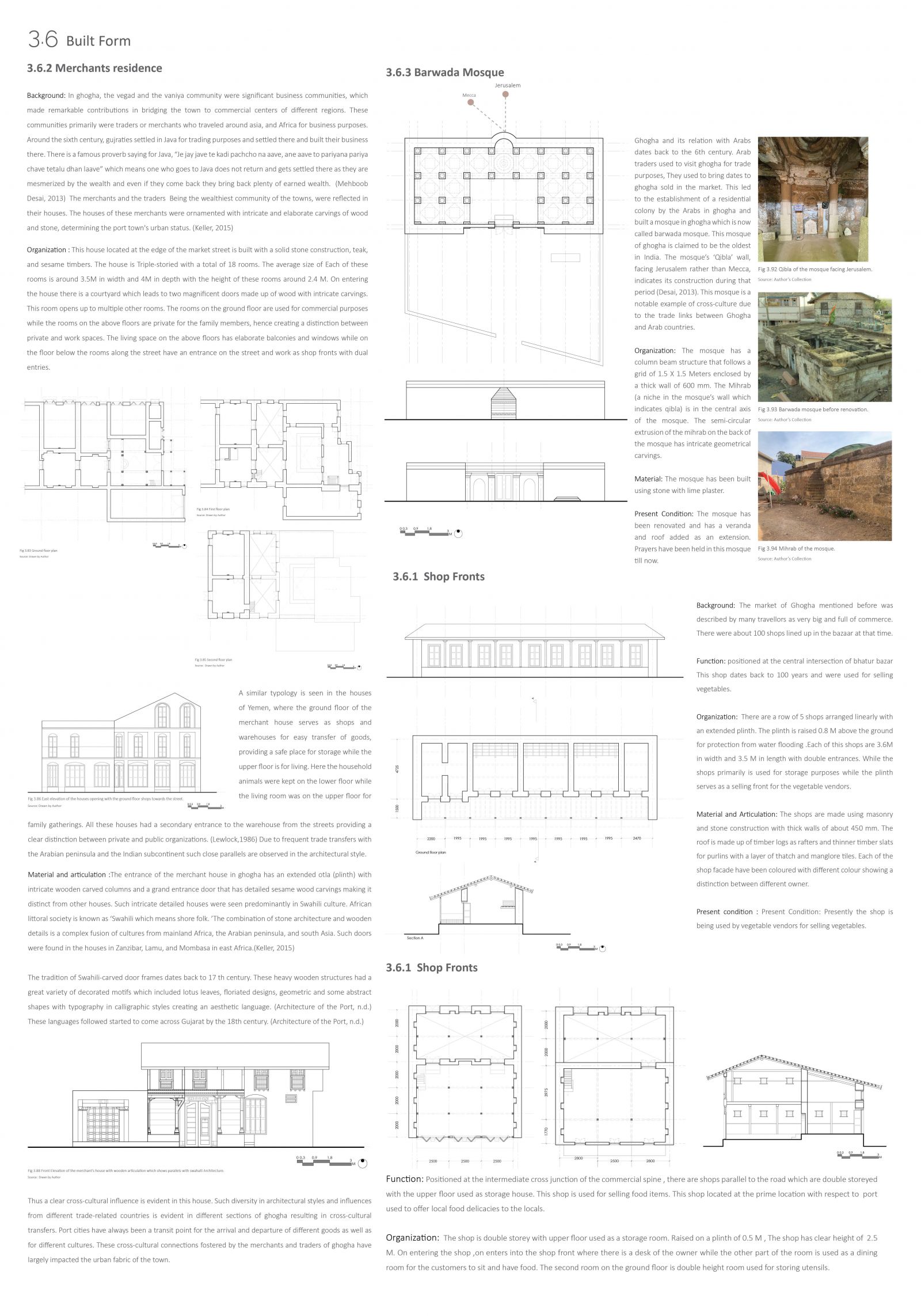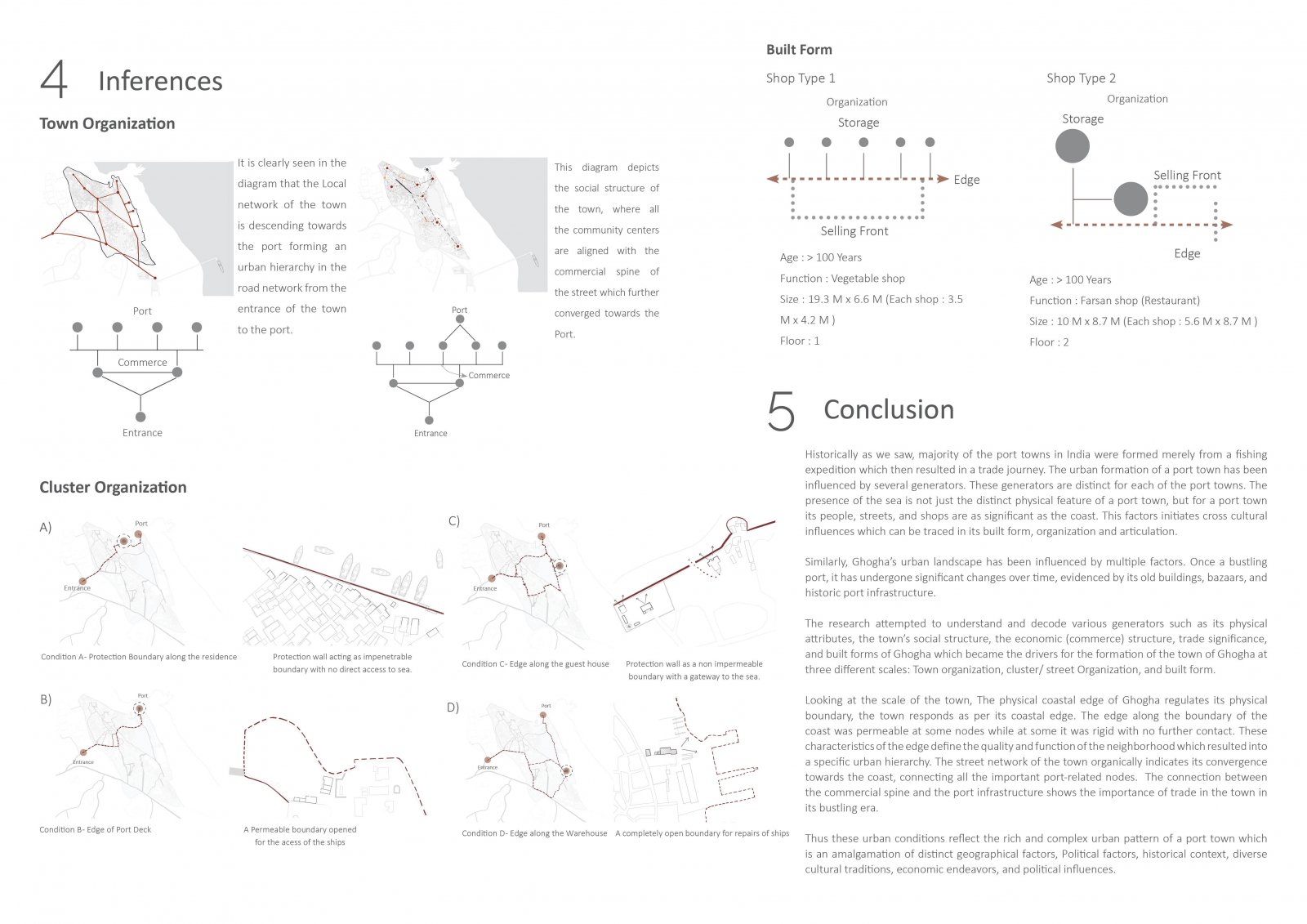Your browser is out-of-date!
For a richer surfing experience on our website, please update your browser. Update my browser now!
For a richer surfing experience on our website, please update your browser. Update my browser now!
India has a rich and strong maritime history. Port towns and cities plays a very crucial role in bridging the connection between the hinterland and the sea. The development of these port cities can be attributed to various essential factors, spanning from the Indus civilization to the Mughal era and eventually to the British Raj. They serve as a very prominent center for trade and commerce. These port towns have developed and evolved over years due to various generators which are responsible for the specific urban pattern of the town. The Research explores the urban pattern of port towns of Gujarat. The research attempts to understand this complex yet coherent urban pattern of a port town by tracing the methods and trade links that evolved over a while through the means of the generators such as the culture of trade, urban infrastructure, the merchant communities, social structure, and networks. Ghogha, a coastal town in Gujarat has a very rich maritime history. The research aims to analyze the impact of commerce on the spatial organization of Ghogha by mapping and documenting its markers. It seeks to understand how commercial activities have shaped the town’s urban patterns and how its inhabitants utilize these spaces.
View Additional Work